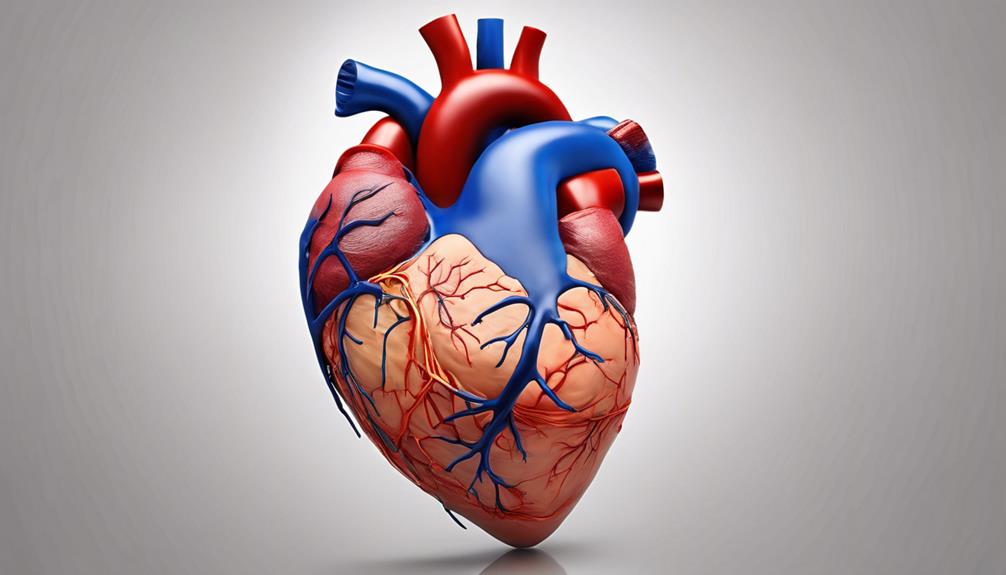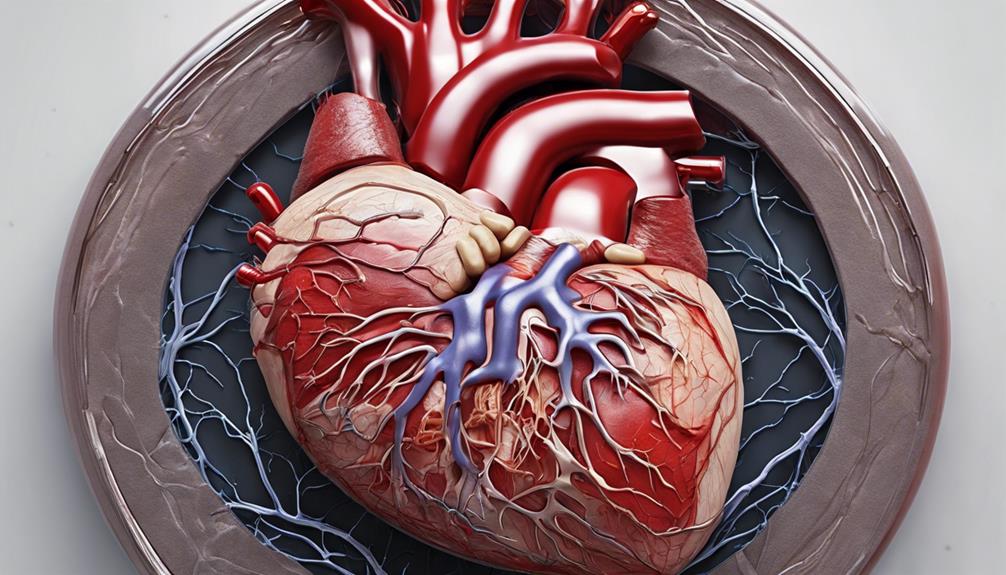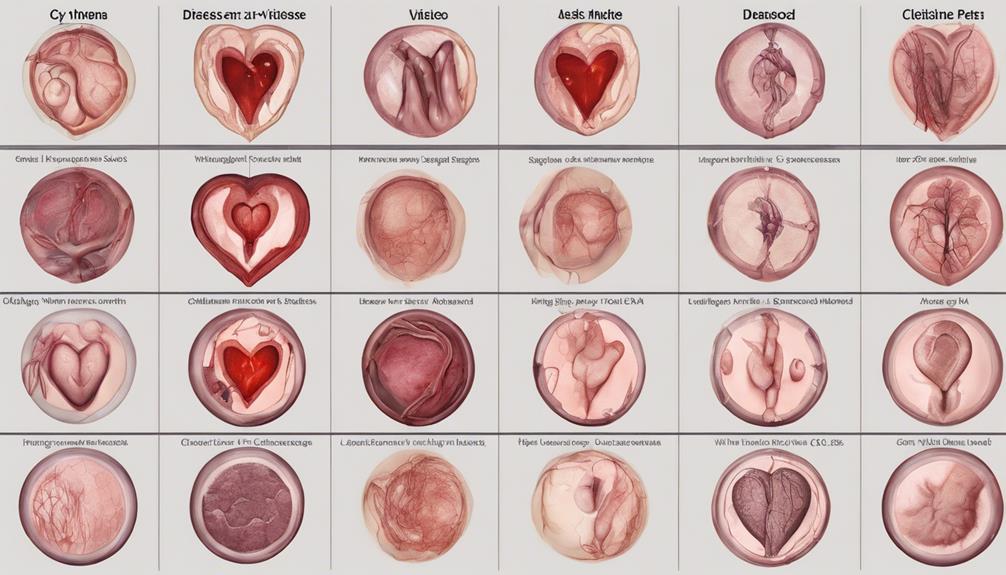Imagine a situation where an individual in their middle age receives a diagnosis of uncontrolled high blood pressure and subsequently is found to have hypertensive heart disease, even without displaying any symptoms of heart failure. This health issue is classified under the ICD-10 code I11.9. Having a clear understanding of the specifics of this particular code is essential for precise documentation and to ensure the patient receives the correct treatment.
As we explore the complexities of this condition and its coding implications, we will uncover essential insights into managing hypertensive heart disease effectively, ensuring optimal patient care and outcomes.
Overview of ICD-10 Coding for Hypertensive Heart Disease
In our clinical practice, we commonly utilize ICD-10-CM code I11.9 to designate cases of hypertensive heart disease without heart failure. This code is crucial in distinguishing cases without congestive heart failure from those with it.
Hypertensive heart disease without heart failure refers to the cardiac manifestations of hypertension that don't include the development of heart failure. It falls under the Diseases of the circulatory system category in the WHO medical classification.
Conditions falling under I11.9 include those within the I50.- or I51.4-I51.7 range, I51.89, I51.9 due to hypertension. Accurate coding using I11.9 is essential for proper diagnosis and subsequent treatment planning.
Understanding the nuances of this code aids healthcare providers in delivering targeted care to patients with hypertensive heart disease without heart failure, ensuring appropriate management and monitoring of their condition.
Risk Factors and Symptoms of Hypertensive Heart Disease

Common risk factors and symptoms associated with hypertensive heart disease encompass a range of cardiovascular manifestations and clinical presentations. Risk factors such as high blood pressure, obesity, tobacco use, high cholesterol, and a sedentary lifestyle contribute to the development and progression of hypertensive heart disease. Individuals with this condition may experience symptoms like chest pain, shortness of breath, fatigue, irregular heartbeat, and swelling in the legs.
It's essential to recognize these signs early on to prevent complications like heart attack, stroke, heart failure, and kidney damage. Proper management of hypertension through lifestyle modifications, including a healthy diet and regular exercise, along with medication adherence, plays a crucial role in controlling hypertensive heart disease.
Regular monitoring of blood pressure, cholesterol levels, and overall heart health is vital for individuals with hypertensive heart disease to prevent adverse outcomes and maintain a good quality of life.
Diagnosis and Diagnostic Criteria for ICD-10 Coding
- Documentation of Hypertension: The presence of documented hypertension is essential for assigning code I11.9. This can include elevated blood pressure readings or a documented history of hypertension.
- Clinical Evaluation: A thorough clinical evaluation by a healthcare provider is necessary to confirm the diagnosis of hypertensive heart disease without heart failure. This evaluation may involve physical exams, imaging tests, and other diagnostic procedures.
- Identification of Heart Disease: The medical record should clearly indicate the presence of heart disease related to hypertension. This could involve specific cardiac conditions such as left ventricular hypertrophy or coronary artery disease.
- Review of Medical Documentation: Accurate ICD-10-CM coding requires a comprehensive review of the medical documentation to ensure that all relevant details supporting the diagnosis of hypertensive heart disease without heart failure are captured.
Treatment Options and Management Strategies

Treatment options and management strategies for hypertensive heart disease without heart failure primarily focus on controlling high blood pressure through a combination of lifestyle modifications and pharmacological interventions.
Lifestyle changes play a crucial role and include maintaining a healthy diet low in sodium and saturated fats, engaging in regular physical activity, quitting smoking, and limiting alcohol intake. Regular monitoring of blood pressure levels is essential to track progress and adjust treatment plans accordingly.
Pharmacological interventions are commonly used in conjunction with lifestyle modifications. Medications such as ACE inhibitors, beta blockers, diuretics, and calcium channel blockers are often prescribed to help lower blood pressure and reduce the strain on the heart.
In more severe cases, procedures like angioplasty or surgery may be necessary to address complications of hypertensive heart disease. It's imperative for individuals with this condition to collaborate closely with healthcare providers to develop a personalized treatment plan and ensure regular monitoring to manage the disease effectively.
Prognosis and Long-Term Implications
With timely diagnosis and effective management of hypertension, the prognosis for hypertensive heart disease without heart failure can be significantly improved. To ensure the best long-term outcomes for individuals with this condition, the following key points should be considered:
- Regular Monitoring: Scheduled check-ups with healthcare providers are crucial to track blood pressure levels, assess the effectiveness of treatment, and identify any potential complications early on.
- Adherence to Treatment: It's essential to follow the prescribed medication regimen diligently and make necessary lifestyle modifications, such as maintaining a healthy diet, engaging in regular physical activity, and avoiding smoking.
- Risk of Complications: While proper control of blood pressure can reduce the risk of complications, individuals with hypertensive heart disease without heart failure should be aware of the potential development of heart failure or other cardiovascular issues over time.
- Optimal Management: Working closely with healthcare professionals to tailor treatment plans, address any concerns, and adjust strategies as needed can lead to a more positive long-term prognosis and improved quality of life.
Frequently Asked Questions
What Is Hypertensive Heart Disease Without Heart Failure?
We can define hypertensive heart disease without heart failure as a condition where the heart is affected by high blood pressure, leading to various heart-related issues. It includes a range of heart diseases caused by hypertension, such as those identified by codes I50.- or I51.4-I51.7, I51.89, I51.9.
Understanding the specific guidelines for this condition is crucial for accurate coding and proper management.
What Is the ICD Code for Hypertensive Heart Disease Without Heart Failure?
We use the ICD-10 code I11.9 for hypertensive heart disease without heart failure. This code is crucial for accurate documentation and billing in healthcare.
It falls under Diseases of the circulatory system in the WHO medical classification. Proper use of this code is vital in ensuring that patients receive the appropriate care and services they need.
Remembering to apply the correct code helps in maintaining high standards of healthcare practice.
What Is the Diagnosis Code for Hypertensive Heart Disease?
We know the diagnosis code for hypertensive heart disease is crucial for accurate medical records. It's essential to use the correct code, like I11.9 in the ICD-10 system, to identify conditions linked to hypertension.
Proper coding helps us document cases precisely. By understanding guidelines and exclusions, we ensure accurate billing. The diagnosis code I11.9 is our key to identifying hypertensive heart disease without heart failure effectively.
Is Hypertensive Heart Disease the Same as Chf?
Yes, hypertensive heart disease and congestive heart failure (CHF) are distinct conditions. Hypertensive heart disease is caused by high blood pressure affecting the heart, while CHF involves the heart's inability to pump effectively.
Although untreated hypertensive heart disease can lead to CHF, they have different diagnostic criteria. Proper management of hypertensive heart disease can prevent its progression to CHF.
It's crucial to differentiate between the two for effective treatment.
Conclusion
In conclusion, it's crucial to accurately code and document cases of hypertensive heart disease without heart failure using ICD-10 code I11.9 to ensure proper treatment and management.
One compelling statistic to consider is that hypertensive heart disease is a leading cause of morbidity and mortality worldwide, affecting millions of individuals each year.
By understanding and applying the coding guidelines effectively, healthcare professionals can make a significant impact on improving outcomes for patients with this condition.









